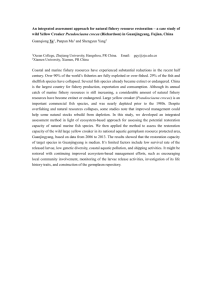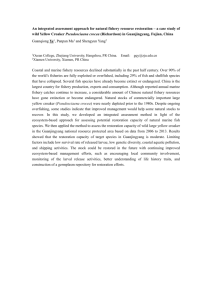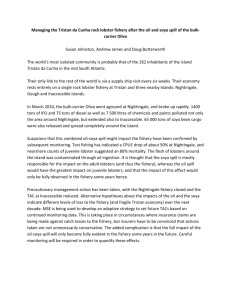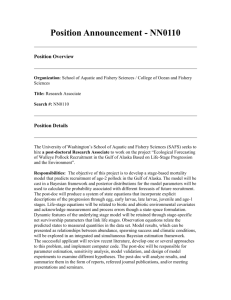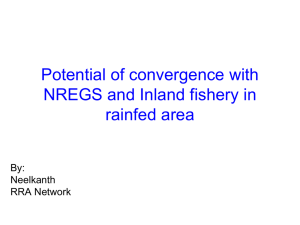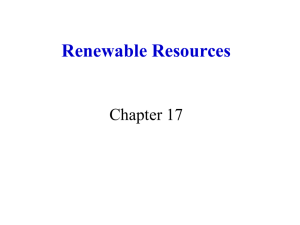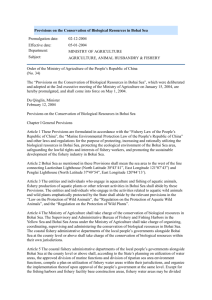盟軍總部與中日漁權爭議(1945-1952)
advertisement
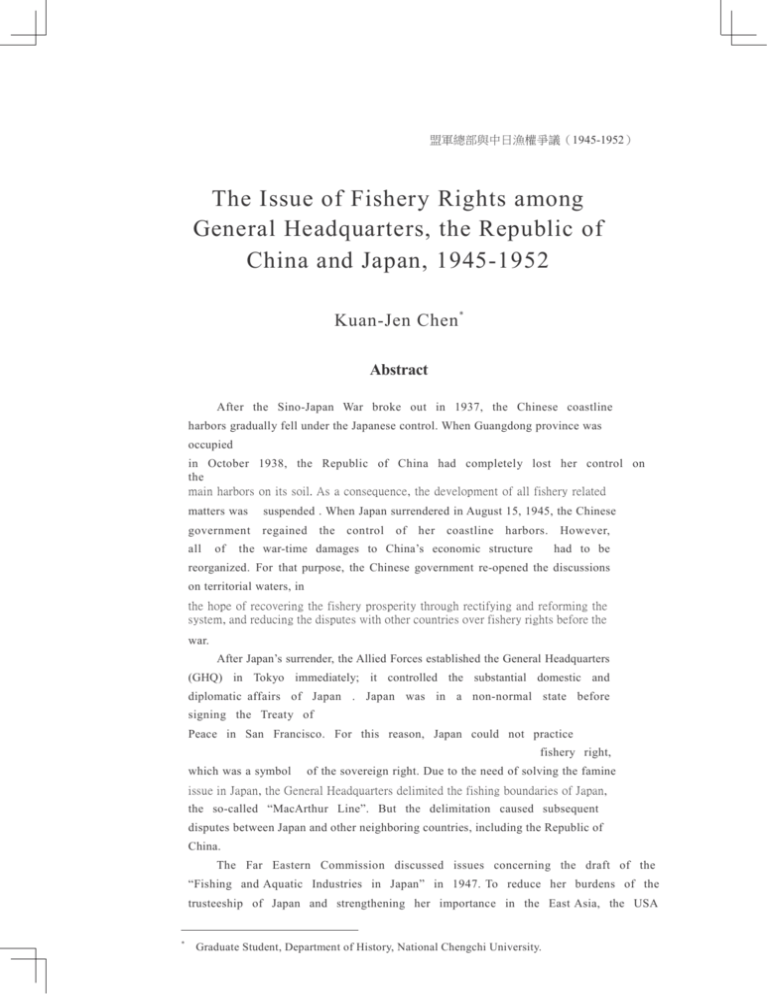
盟軍總部與中日漁權爭議(1945-1952) The Issue of Fishery Rights among General Headquarters, the Republic of China and Japan, 1945-1952 Kuan-Jen Chen * Abstract After the Sino-Japan War broke out in 1937, the Chinese coastline harbors gradually fell under the Japanese control. When Guangdong province was occupied in October 1938, the Republic of China had completely lost her control on the main harbors on its soil. As a consequence, the development of all fishery related matters was suspended . When Japan surrendered in August 15, 1945, the Chinese government regained all of the control of her coastline harbors. the war-time damages to China’s economic structure However, had to be reorganized. For that purpose, the Chinese government re-opened the discussions on territorial waters, in the hope of recovering the fishery prosperity through rectifying and reforming the system, and reducing the disputes with other countries over fishery rights before the war. After Japan’s surrender, the Allied Forces established the General Headquarters (GHQ) in Tokyo immediately; it controlled the substantial domestic and diplomatic affairs of Japan . Japan was in a non-normal state before signing the Treaty of Peace in San Francisco. For this reason, Japan could not practice fishery right, which was a symbol of the sovereign right. Due to the need of solving the famine issue in Japan, the General Headquarters delimited the fishing boundaries of Japan, the so-called “MacArthur Line”. But the delimitation caused subsequent disputes between Japan and other neighboring countries, including the Republic of China. The Far Eastern Commission discussed issues concerning the draft of the “Fishing and Aquatic Industries in Japan” in 1947. To reduce her burdens of the trusteeship of Japan and strengthening her importance in the East Asia, the USA * Graduate Student, Department of History, National Chengchi University. -49- 國史館館刊 第 27期 took an arbitrary attitude toward the fishery draft, and this attitude prompted discontent of Japanese neighboring countries (e.g. R.O.C. and USSR). As a result, Far Eastern Commission did not adopt this version of draft. However, the General Headquarters still extended Japan’s fishery zone without the consents of neighboring countries. From 1948 to 1952, many Japanese fishing boats were still transgressing the fishery delimitation. The government of the Republic of China established domestic laws to counteract Japanese intrusion, but this action led to conflicts with the functions and powers of the General Headquarters. Finally, due to the consideration of the international circumstances, the government of the Republic of China gave way to the General Headquarters. When the Treaty of Peace with Japan came into effect in 1952, Japan became independent without trusteeship. The fishery negotiation between the Republic of China and Japan turned a new page without the GHQ’s interferences. This study uses the archives in Taiwan and Tokyo to clarify the issue of the fishery right discussed among the General Headquarters, the Republic of China and Japan after the WWII. Keywords: the Fishery Right, the diplomacy of the Republic of China, the relationship between the Republic of China and Japan, the General Headquarters, the Far Eastern Commission -50-
